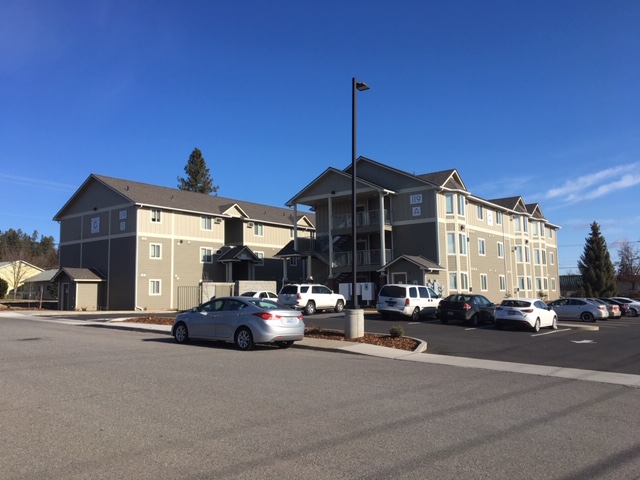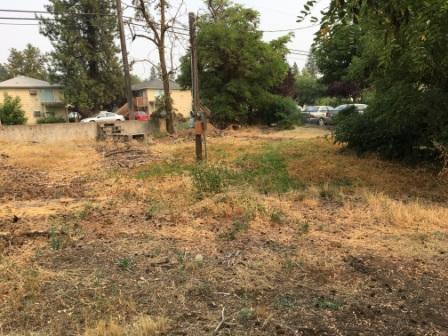
We love to work with redevelopers interested in reviving potentially contaminated properties. The Cheney Super Stop cleanup site is a great example of a project that not only protects people and the environment by addressing contamination, but reuses a previously developed property instead of clearing undisturbed land for new construction.
The site was redeveloped under the Voluntary Cleanup Program, which allows property owners to request technical assistance and regulatory guidance from us.
A service station operated at the site from about 1940 until 1951, when the City of Cheney purchased it to use as a shop and maintenance facility until the 1970s. The above-ground storage tanks and one underground storage tank were removed in 1974, and the building was demolished, leaving vacant but contaminated land. A portion of the site later became the Spokane Transit Authority K Street Station park and ride facility.
In 1998, a potential property transfer led to a site assessment, which found soil and groundwater contamination. Two 500-gallon storage tanks were unearthed during site investigation and cleanup. The tanks were removed along with more than 5,000 tons of contaminated soil.
The site before redevelopment.
Last May, we drafted an environmental covenant that includes a maintenance and repair plan for the parking lot that covers remaining contaminated soil, and we reviewed apartment building designs to ensure stormwater drainage doesn't carry any contamination off the site. After a public comment period in July 2019, we removed the site from the state’s Hazardous Sites List.
Today, the site houses a 42-unit apartment complex that’s ideal for Eastern Washington University students who can step out their front door and be at the adjacent bus stop or downtown Cheney in just a few minutes on foot.
Cleanups not only protect people and the environment, they also create strategic opportunities to turn blighted properties into economically viable developments that increase local and state tax revenues.


